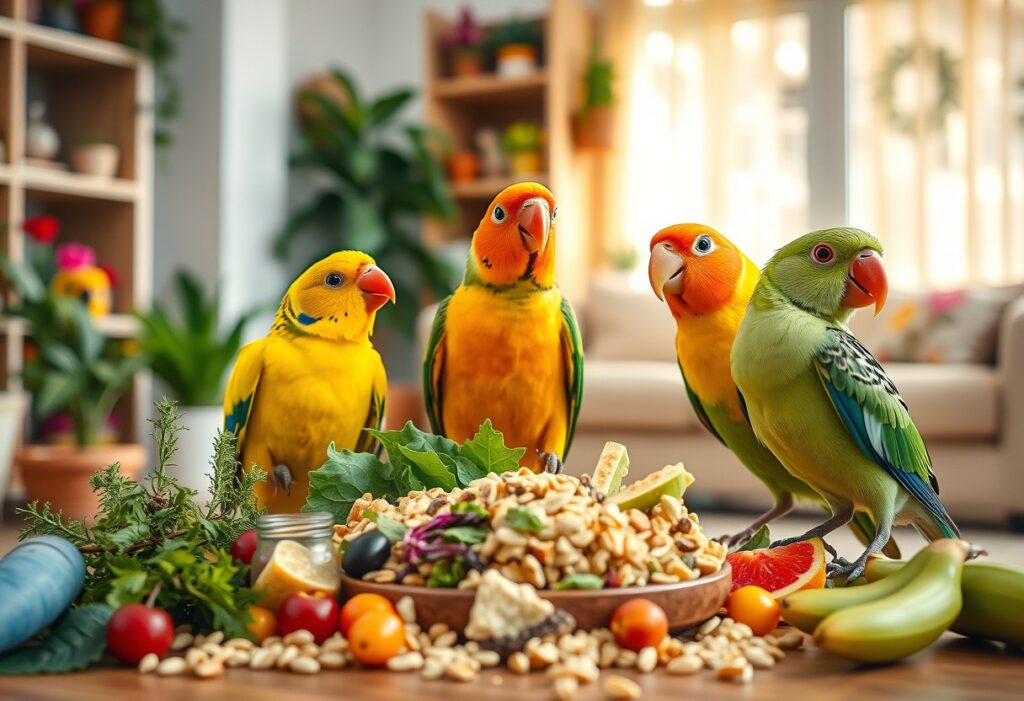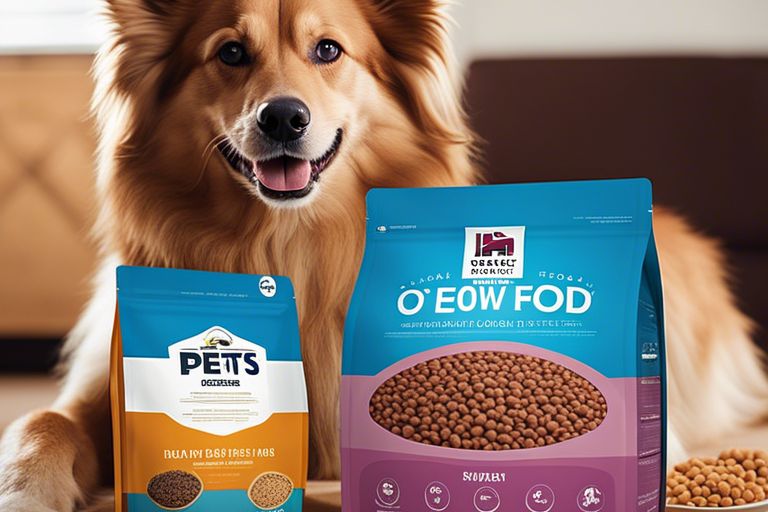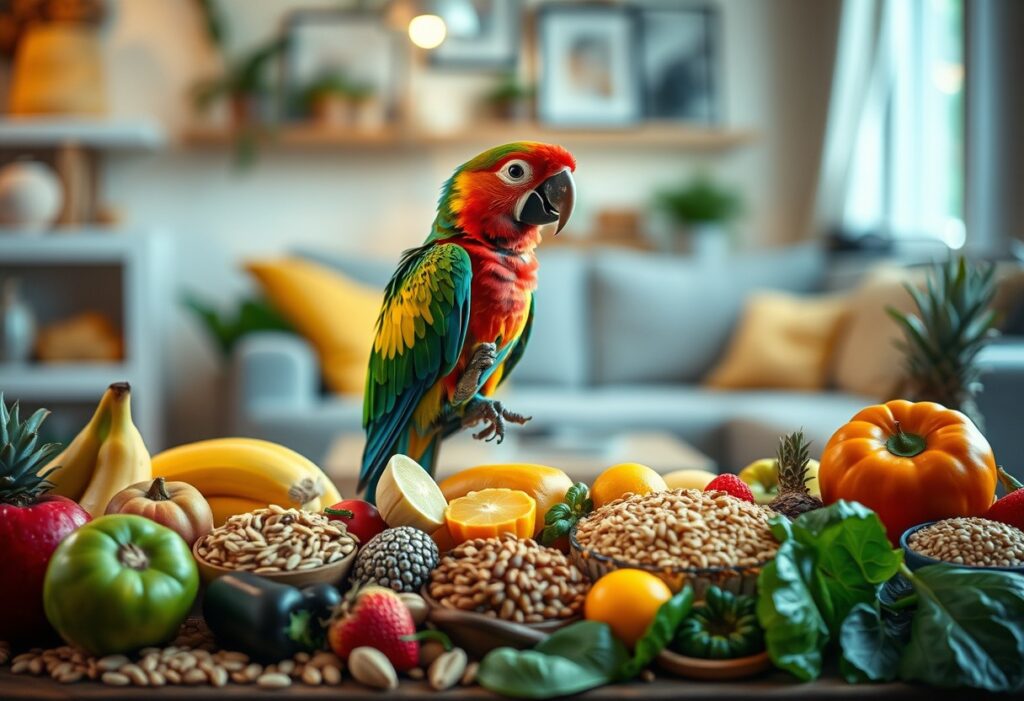Many pet owners underestimate the importance of fiber in their feathered friends’ diets. Fiber plays a crucial role in maintaining digestive health, facilitating proper nutrient absorption, and preventing obesity and related health issues. By incorporating appropriate sources of fiber in your bird’s meals, you can ensure optimal health and longevity. In this post, we will explore the various benefits of fiber, how to recognize signs of dietary deficiencies, and tips for enhancing your bird’s diet with healthy, fiber-rich options.
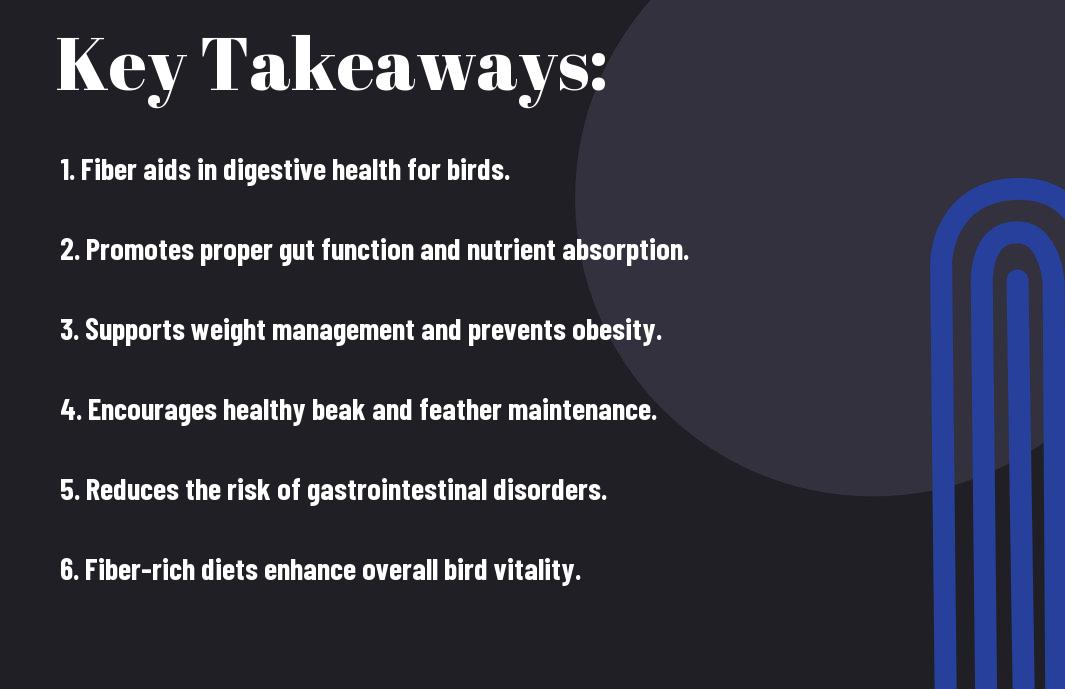
Understanding Fiber
While the importance of fiber in bird health cannot be overstated, understanding its nuances is crucial for any bird owner or enthusiast. Fiber plays a key role in maintaining digestive health, helping to prevent conditions such as obesity and gastrointestinal disorders. It also contributes to overall well-being by aiding in the regulation of blood sugar levels and providing necessary nutrients.
Types of Fiber
One of the fundamental aspects of fiber is that it comes in different types, each serving unique functions. The two main categories are soluble fiber and insoluble fiber. Soluble fiber dissolves in water and forms a gel-like substance in the gastrointestinal tract, which can help slow digestion and ease nutrient absorption. On the other hand, insoluble fiber adds bulk to your bird’s diet, promoting the movement of food through the intestines. Both types are necessary for a balanced diet.
| Type of Fiber | Function |
| Soluble Fiber | Slows digestion and eases nutrient absorption |
| Insoluble Fiber | Adds bulk and promotes intestinal movement |
| Prebiotic Fiber | Feeds beneficial gut bacteria |
| Functional Fiber | Added to food for specific health benefits |
Understanding the types of fiber available can help you make informed dietary choices for your birds. Consider integrating a mix of both soluble and insoluble fiber into their meals to support their overall health and digestive function.
Nutritional Sources
Types of fiber can be sourced from various natural products that you can easily integrate into your bird’s diet. Fruits, vegetables, whole grains, and certain seeds are all excellent sources of dietary fiber. Each food item may offer specific types of fiber, which can help tailor your approach to your bird’s individual health needs. Dark leafy greens and fresh fruits can provide both soluble and insoluble fiber, making them ideal for promoting digestive health.
For instance, incorporating foods such as broccoli, carrots, and quinoa can significantly enrich your bird’s fiber intake. Additionally, avoid processed foods that may be low in fiber or contain harmful additives. The combination of high-fiber fruits and vegetables not only enhances digestion but also supports immune health and overall vitality. By providing a variety of fiber-rich foods, you can ensure that your bird receives the necessary nutrients necessary for long-term health and happiness.
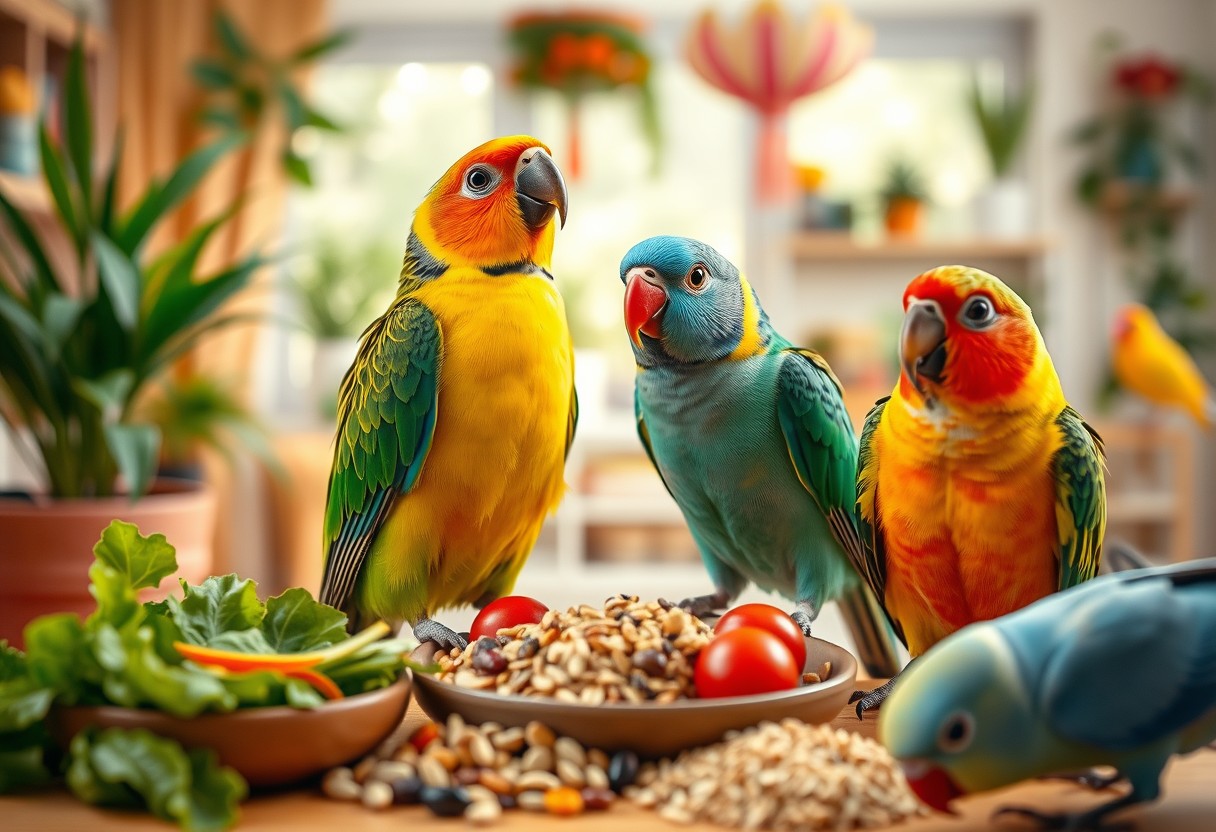
Fiber’s Impact on Digestive Health
Little do most bird owners know, but the role of fiber in your bird’s diet is crucial for maintaining optimal digestive health. A diet that is rich in fiber can provide important benefits for your feathered friend, contributing significantly to their overall well-being. Ensuring that your pet bird consumes adequate fiber helps facilitate smooth gastrointestinal function, which in turn supports nutrient absorption and metabolism.
Gastrointestinal Function
On a fundamental level, fiber contributes to the regulation of your bird’s digestive processes. It aids in the formation of feces, allowing for efficient elimination and preventing blockages that can lead to serious health issues. Furthermore, fiber promotes a healthy balance of gut bacteria, supporting a thriving microbiome that is vital for digestion. Providing your bird with natural sources of fiber, such as fruits, vegetables, and whole grains, can encourage consistent gastrointestinal motility, ensuring that food moves efficiently through the digestive tract.
Prevention of Digestive Disorders
One of the most significant advantages of incorporating fiber into your bird’s diet is its role in the prevention of digestive disorders. A fiber-rich diet can help avert common issues such as constipation, diarrhea, and crop impaction. By maintaining a balanced intake of soluble and insoluble fiber, you can support your bird in processing food more effectively, which leads to a healthier gut environment. Moreover, fiber can act as a “bulking agent,” improving waste elimination and minimizing discomfort from gastrointestinal disturbances.
It is important to recognize that inadequate fiber intake can put your bird at risk for serious digestive issues. Without sufficient fiber, your avian companion may experience constipation or even develop more severe complications, such as gastrointestinal blockages. Thus, ensuring that your bird’s diet is rich in fiber will help create a healthy digestive environment and mitigate potential risks, ensuring long-term health and well-being.
Fiber and Overall Bird Well-Being
Now, understanding the role of fiber in your bird’s diet is crucial for promoting overall health and well-being. Fiber is not just a simple filler; it plays a vital role in various biological functions that contribute to your bird’s quality of life. By ensuring your feathered friends consume an appropriate amount of fiber, you can help maintain their digestive health and avoid several potential health complications.
Weight Management
To effectively manage your bird’s weight, incorporating a nutrient-dense diet that includes sufficient fiber is key. Birds, much like other animals, can struggle with obesity, which can lead to serious health problems such as heart disease and diabetes. By ensuring that your bird has access to high-fiber foods, you can help her feel fuller, thereby reducing excessive snacking on unhealthy, high-calorie treats. This type of dietary adjustment encourages a balanced weight, making it easier for your bird to maintain a healthy lifestyle.
Also, providing fiber-rich foods can increase your bird’s overall activity levels. When your bird feels full and satisfied from their meals, they are more likely to engage in play and exercise, leading to a healthier body weight and improved vitality. Do not forget, a healthy weight is not only about appearance but also about the long-term well-being and longevity of your feathered companion.
Impact on Stress Levels
Stress is a common issue for many birds, and it can have a profound effect on their health. Fiber plays a role in managing stress levels by aiding in digestion and promoting a comfortable gut environment. Additionally, a balanced diet high in fiber can help keep your bird’s mood stable, providing a sense of security and well-being in their daily life. This is particularly important in environments that may be stressful, such as during periods of change or uncertainty.
Plus, a diet rich in fiber can serve as a natural remedy for stress-related behaviors such as excessive preening or feather plucking. Ensuring that your bird has access to a variety of fiber sources not only improves their physical health but also enhances their emotional state. Implementing these changes can lead to a significant decrease in anxiety, resulting in a happier and healthier bird. Do not forget, your bird’s well-being relies on a combination of nutrition, enrichment, and understanding their behaviors!
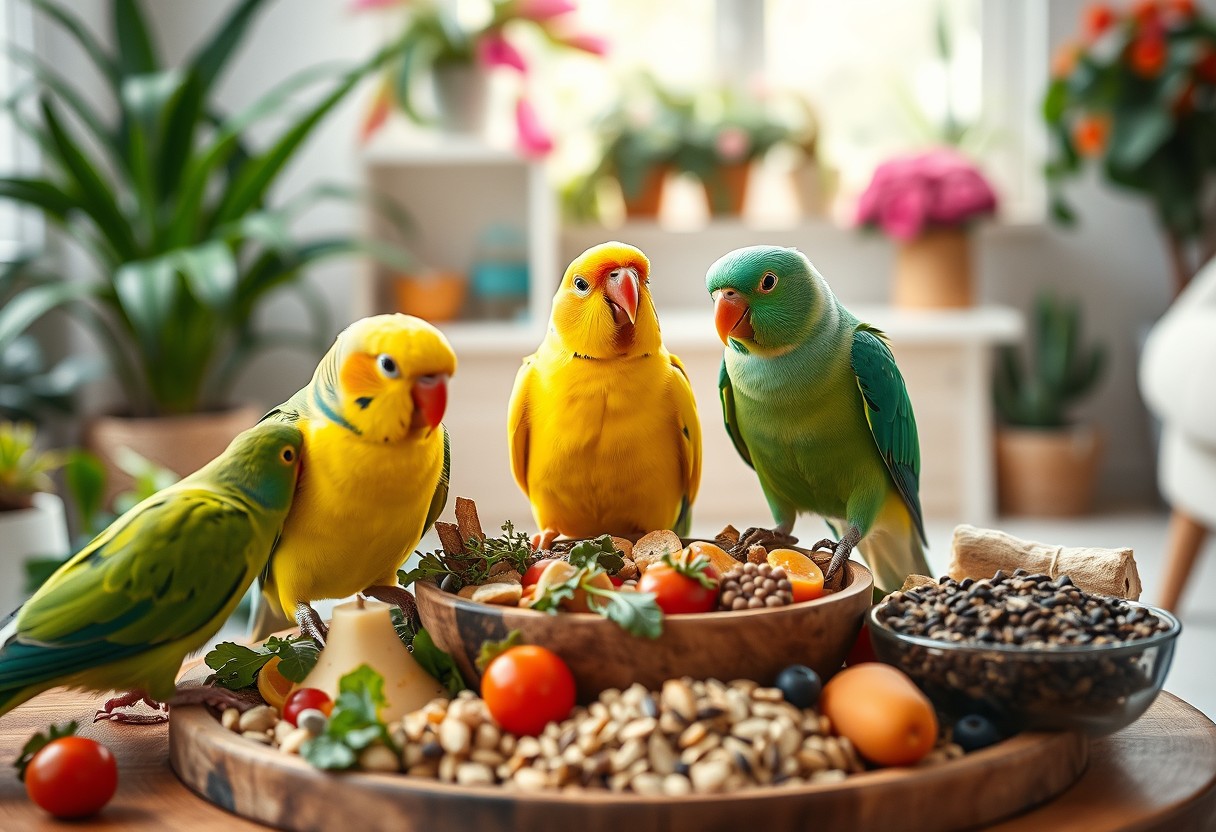
Incorporating Fiber into Diets
Not all birds require the same amount of fiber, and it’s crucial for you to choose the right sources to meet their dietary needs. Incorporating adequate fiber into your bird’s diet can significantly enhance their digestive health and overall well-being. This chapter outlines the best sources of fiber and provides practical feeding guidelines to help ensure your feathered friend thrives.
Recommended Fiber Sources
Fiber is an vital component of your bird’s diet, promoting healthy digestion and preventing various health issues. Introduce natural sources of fiber such as fresh vegetables like leafy greens, carrots, and broccoli, which can provide both hydration and vital nutrients. Additionally, offering small amounts of fruits, seeds, and nuts can also be beneficial, but these should not outweigh the fiber-rich options. High-fiber pellets can be included alongside fresh produce as a convenient way to ensure your bird receives adequate fiber intake.
Furthermore, when considering commercial bird diets, look for those specifically formulated to include fiber-rich ingredients. Products with whole grains, legumes, and vegetable by-products can help ensure your bird gets a balanced blend of nutrients, including the fiber they need for a healthy digestive system. Regularly rotating these fiber sources can also keep your bird engaged and interested in their meals.
Feeding Practices and Guidelines
On top of selecting appropriate fiber sources, implementing proper feeding practices can enhance your bird’s digestive health. You should offer fresh produce daily while ensuring any uneaten food is removed to prevent spoilage. It’s advisable to introduce new fiber sources gradually, allowing your bird to adjust without digestive upset. Monitor your bird’s droppings; changes in consistency can indicate an issue with their diet.
Into your feeding routine, consider establishing a consistent schedule for meals. This helps regulate your bird’s digestion and encourages healthy eating patterns. Additionally, providing various textures and shapes will not only stimulate their natural foraging instincts but also promote better grooming and bill health. Remember to always research and consult with an avian veterinarian if you notice any signs of digestive difficulties or if you have questions about your bird’s specific dietary needs, as they can provide tailored advice that will support your bird’s health optimally.
Conclusion
Presently, understanding the role of fiber in bird health is crucial for ensuring that your avian companions lead healthy and fulfilling lives. Fiber is not just a dietary component; it’s a vital element that aids in digestion, prevents obesity, and promotes overall well-being in birds. When you prioritize a high-fiber diet for your birds, you’re taking significant steps toward preventing common health issues such as crop stasis and gastrointestinal disorders. Enriching their diet with fibrous foods cultivates a healthier lifestyle and enhances the quality of their lives.
Moreover, incorporating a diverse range of fiber-rich foods, including fruits, vegetables, and grains, can contribute to your birds’ mental and physical stimulation. As you make informed decisions about their diet, remember that fiber supports not only their physical health but also their emotional well-being. By providing your feathered friends with the right balance of fiber, you empower them to thrive, showcasing the importance of proper nutrition in avian care. Your commitment to understanding and applying these nutritional principles will undoubtedly make a difference in the happiness and longevity of your pet birds.
FAQ
Q: Why is fiber important for a bird’s diet?
A: Fiber plays a crucial role in maintaining a bird’s digestive health. It helps in regulating the movement of food through the intestines, preventing issues such as constipation and impaction. Additionally, dietary fiber promotes healthy gut flora, which is imperative for nutrient absorption and overall wellbeing. A diet rich in fiber also aids in weight management, as it increases satiety and reduces the risk of obesity in pet birds.
Q: What types of fiber should be included in a bird’s diet?
A: Birds should have a balanced diet that includes both soluble and insoluble fibers. Soluble fiber is found in fruits and some vegetables, and it can help with nutrient absorption and regulating blood sugar levels. Insoluble fiber, found in whole grains, seeds, and leafy greens, is vital for promoting healthy digestion and regular bowel movements. Providing a mix of these fiber sources through pellets, fresh fruits, vegetables, and high-fiber seeds will ensure a well-rounded diet for pet birds.
Q: Can a lack of fiber in a bird’s diet lead to health problems?
A: Yes, insufficient fiber intake can lead to several health issues in birds. Low fiber diets can cause digestive problems, such as slow digestion, gastrointestinal blockages, and obesity. Additionally, without adequate fiber, birds may experience decreased gut motility, leading to an increased risk of conditions like fatty liver disease and other metabolic disorders. Ensuring that birds receive a fiber-rich diet is imperative for preventing these health complications and supporting their overall wellbeing.
